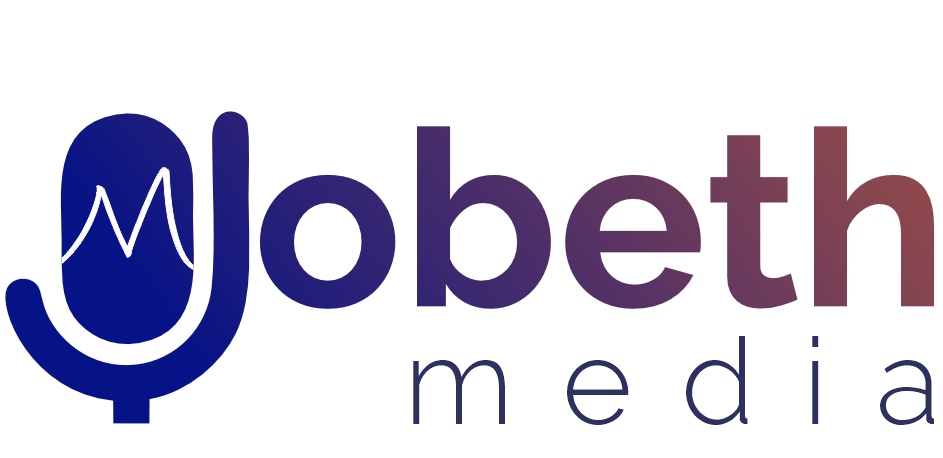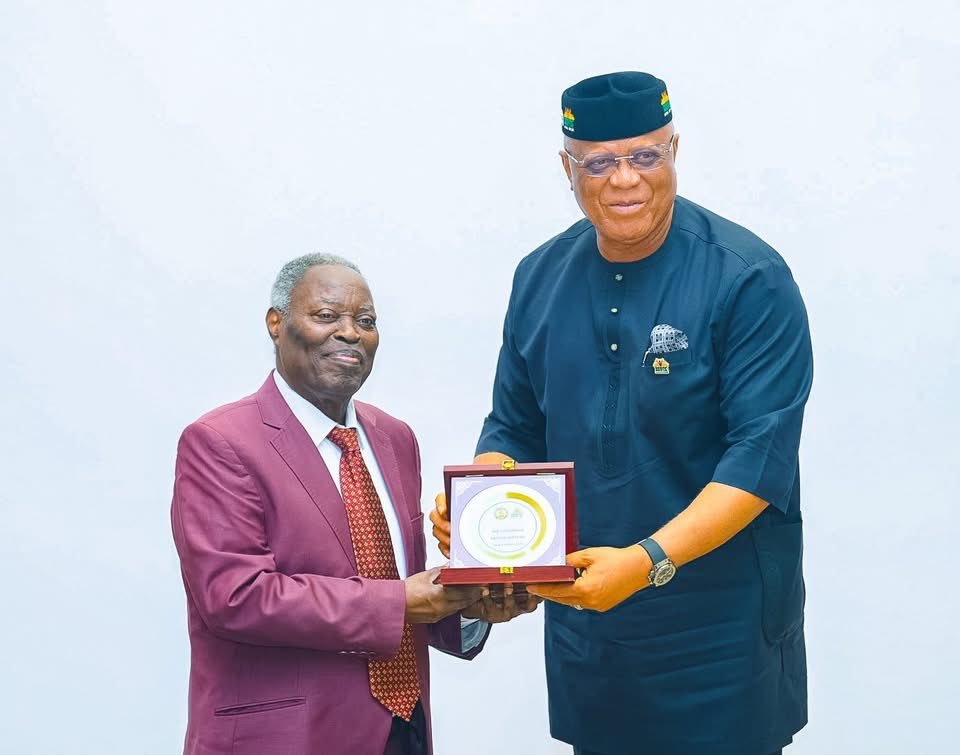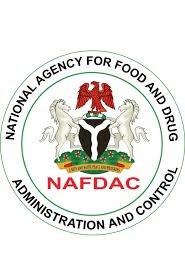UNIMED CLINICAL SCIENCES CONFERENCE: VC ENVISIONS INCLUSIVE MEDICAL TRANSFORMATION VIA TECHNOLOGY
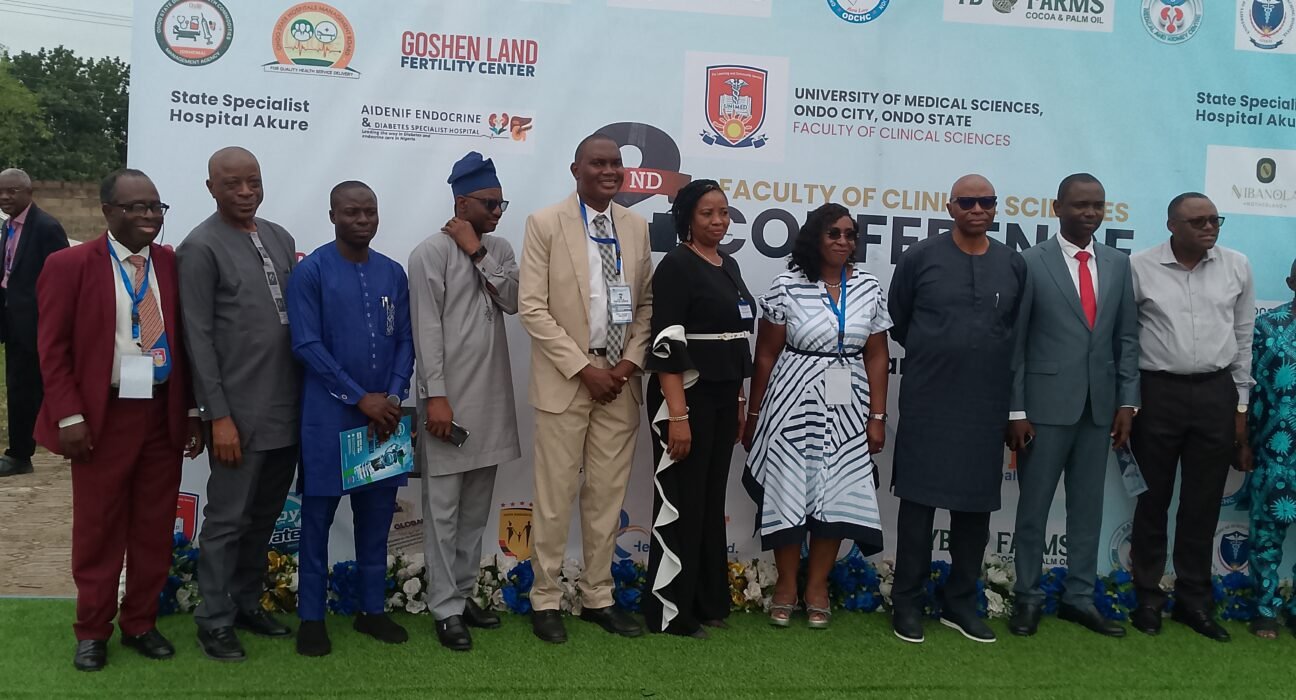
The Vice Chancellor of the University of Medical Sciences (UNIMED), Professor Ebunoluwa Adejuyigbe, has projected a future of transformative and inclusive healthcare delivery in Nigeria— anchored on the power of technology and innovation.
She made this projection while addressing participants at the 2nd Faculty of Clinical Sciences Conference, held at the TETFUND Hall in Ondo City, with the theme- “Transforming Medical Care in Nigeria through Technology and Innovation.”
Prof. Adejuyigbe emphasized how diversity, equity, and inclusion are central to any meaningful transformation in the health sector. “Inclusion must not be an afterthought, but embedded deliberately in the foundation of healthcare reform,” she stated, noting that every challenge in the sector— from limited resources to inequality in access,” is an invitation to innovate.”
She also stressed the importance of collaboration among researchers, educators, and policymakers to develop sustainable and scalable solutions that address Nigeria’s healthcare challenges.
TECH-DRIVEN CHANGE: A CALL TO ACTION
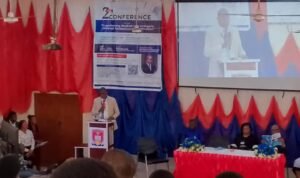 Dean of the Faculty of Clinical Sciences, Professor Oluseyi Adejumo, reiterated the conference’s aim to facilitate knowledge exchange, foster partnerships, and promote the role of technology and Artificial Intelligence (AI) in enhancing medical services.
Dean of the Faculty of Clinical Sciences, Professor Oluseyi Adejumo, reiterated the conference’s aim to facilitate knowledge exchange, foster partnerships, and promote the role of technology and Artificial Intelligence (AI) in enhancing medical services.
“Health professionals must embrace technological advancement or risk being left behind,” he said, describing the growing impact of AI in diagnostics and patient care.
Chairperson of the Local Organizing Committee (LOC), Professor Olufunke Adeyeye, highlighted the urgency of improving healthcare outcomes through technological solutions.
She called on the government and relevant stakeholders to invest in the capacity building of health professionals and the provision of modern equipment.
“We now have significant advances in medicine that can drastically reduce mortality rates. But these can only be effective if professionals are equipped with the right tools and training,” she added.
KEYNOTE INSIGHTS: RADIOLOGY AND REAL-WORLD SOLUTIONS
Keynote speaker and interventional radiologist, Dr. Hameed Ninalowo, spoke on the pivotal role of technology in lowering risks and improving patient outcomes via radiology.
Sharing insights from his professional journey and the COVID-19 pandemic experience, he explained how digital innovation inspired him to pioneer low-cost radiological services for underserved populations.
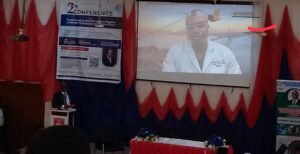
ENCOURAGEMENT FOR THE NEXT GENERATION
Chief Medical Director, Dr Gbala Olumide commended the students’ engagement and curiosity, encouraging them to explore all fields of medicine, while stating that “every sphere of medicine has a lot of prospect.”
He underscored the importance of work ethics in healthcare delivery. “Technology is important, but without the right attitude to work, even the best equipment can’t deliver quality care,” he said, noted that patients deserve more than just competence— they deserve commitment.
Read Also:
THOUGHT-PROVOKING SESSIONS AND RESEARCH SHOWCASES
Notable academic presentations and conversations enriched the conference as Professor Atinuke Akinmoladun spoke on “Bridging the Diagnostic Gap: The Future of Early Life Screening in Nigeria,” emphasizing that early detection is vital in reducing preventable deaths.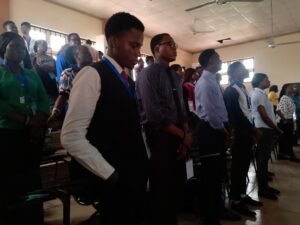
Similarly, Professor Adeyinka Adeniran, had a session titled “Enhancing Access and Equity: The Emerging Role of Technology in Remote and Underserved Communities,” who described how digital tools can bridge healthcare gaps for marginalized populations.
The conference also featured oral and poster presentations from medical students and consultants, such as Dr. Afe Duke and student researcher Ebine Favor, whose work on HPV DNA testing, reflected the dynamic research environment in UNIMED’s Faculty of Clinical Sciences.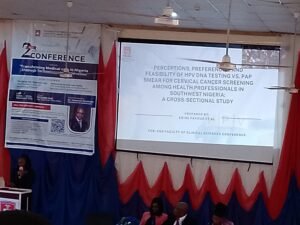
A GATHERING OF THOUGHT LEADERS
The three-day event which attracted distinguished guests including the former Ondo State Governor and UNIMED Visioner, Dr. Olusegun Mimiko, along with a cross-section of medical experts, lecturers, researchers, professionals, students and policymakers from across the country, reveals that the future of Nigerian healthcare lies at the intersection of technology, innovation, and inclusive policy, and a reminder that, with strong academic leadership and collaboration, the path toward a more equitable and efficient health system is within reach.
Watch the insightfull highlights here:

